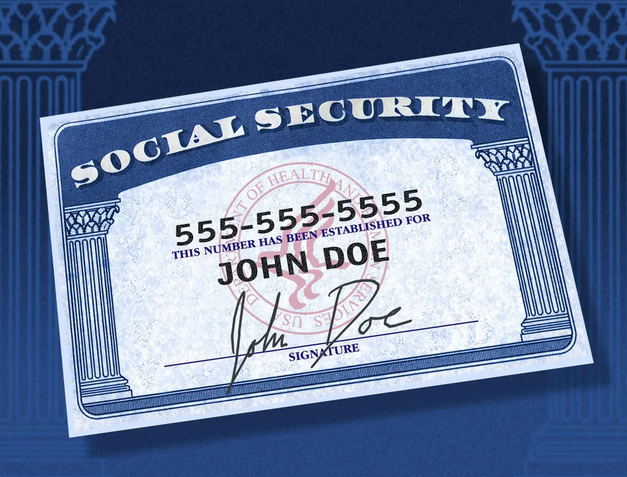Is the Social Security System Broken?

What Is the Social Security Administration?
The Social Security Administration (SSA) is an independent government agency that administers Social Security. It is an insurance program that consists of retirement, disability and survivor benefits. In order to qualify for these benefits most workers pay into the system through Social Security taxes.
The head offices of the Social Security Agency are located in Woodlawn, Maryland and are referred to as the Central Office. There are tens of thousands of workers employed by the Social Security Agency and it is the largest government program in the United States.
It is estimated that by the end of the 2022 fiscal year the agency will have paid out $1.2 trillion in benefits to 66 million citizens and legal residents of the United States. An additional $61 billion is expected in SSI benefits and $7.5 million to low-income individuals.
This government agency is a vital part of the country's economy and without it millions of already struggling Americans would have nothing. It is a program that many have paid into for decades in preparation for retirement and as an insurance policy against sudden disability.
History of the Social Security Agency
On August 14th 1935, President Franklin D. Roosevelt signed the Social Security Act into law as part of his New Deal initiative. This led to the creation of the Social Security Board (SSB), a presidentially appointed group of three executives tasked with overseeing the Social Security program.
With zero budget, staff or even furniture the SSB finally obtained funding from the Federal Emergency Relief Administration. It was on October 14th 1936 that the first Social Security office opened its doors in Austin, Texas.
In January of 1937 Social Security taxes were first collected. Just a few years later the first social security check was issued to Ida Mary Fuller of Battleboro, Vermont. Ida’s check was dated January 31st 1940 and she received $22.54.

The SSB in 1939 merged with the U.S. Public Health Service, the Civilian Conservation Corp and other government agencies to become the Federal Security Agency. In 1846 under President Harry S. Truman the SSB was named the Social Security Administration SSA.
In 1953 the Federal Security Agency was dismantled and the SSA was placed under the banner of the Department of Health, Education and Welfare. Finally in 1994 President Bill Clinton made the Social Security Administration an independent body once again.
What Does the Social Security Administration Say?
An article on the social security website authored by Chief Actuary Stephen C. Goss states that due to changes made to Social Security which were enacted in 1983 there is a finite time frame for being able to supply benefits in full. It is estimated that at the current rate the system will be able to maintain payment of full Social Security benefits until 2037.
This is obviously concerning but does not mean the system will run out of money in 14 years. What it does mean is that beyond 2037 if no changes are made Social Security could only be supplied at roughly 75% of current levels.
What Is Causing the Problem?
Since its inception decades ago the population has been growing. The number of new future taxpayers were enough to contribute into the system to cover the needs of those who need these benefits in later life.

The issue we have now and have done for sometime is that birth rates have decreased. This has happened for many reasons but one of the principal drivers has been a disparity between income and cost of living. People are struggling to afford to have families or at least having smaller families. Some people also have no interest in having families at all which obviously is their right.
This does however create the issue that more and more people are becoming eligible for a pension from Social Security but the potential pool of future taxpayers is shrinking. At present over 50 million beneficiaries are being covered by the contributions of over 150 million workers.
How Can the Shortfall Be Fixed?
At present as mentioned we face a future where the number of recipients of benefits will be too overwhelming for the contributions of taxpaying employees. There are many options being looked at to try and compensate for this future shortfall in the system.
Removing Payroll Tax Caps
Presently there is a cap to how much of a person's income can be taxed for Social Security. As of 2023 the cap is set at $160,200 up $13,200 from the previous year. This means that Social Security taxes only apply to the first $160,200 earned in 2023.

Removing the cap or increasing it significantly would see more money for the Social Security system pot, helping support it for longer.
Increase Payroll Tax
It is estimated that increasing the payroll tax rate from 6.2% up to 6.5% would help alleviate up to 16% of the future shortfall. This would likely be an unpopular step with taxpayers of all economic backgrounds as it would increase their taxes
Increasing Retirement Age
This is another potentially unpopular option but there is interest in increasing the full retirement age. This is the age at which we can retire and receive full benefits. At present this sits at 67 years of age and there is talk of it being increased to 68. Doing this could deal with 14% of the shortfall problem.
Reducing Benefits for High Earners
This is focused on the top 20% of earners who may have considerable savings, private pensions and the means to not need a full pension. They are still however entitled to one thanks to their contributions into the system. Lowering what the top earners make in their Social Security pensions is estimated to decrease the shortfall by 11%.
The Government Can Borrow Social Security Funds
What some people may not be aware of is that the government can and has borrowed from the Social Security fund over the years for other purposes. The rule is however that the funds must be paid back with interest.
Until now according to the Social Security Administration the government has paid back every penny borrowed but there are some who would see the system abolished and the funds redistributed entirely.
What Would Happen If Social Security Went Away?
At present limits we are projected to fine until 2037 at which point the amount of available benefits may drop to 75%. However, should Social Security be dismantled completely over 50 million beneficiaries would lose in some cases their only form or income despite having paid into taxes throughout their working lives.

Is Social Security Broken?
There are some who would have us believe the system is broken and can not continue on and those who would have us think all is rosy and not a problem. The truth is the system has problems some of which will only get worse.
We can not neglect to note the issue of fewer future taxpayers and a growing number of future beneficiaries. Obviously we can’t force people to have larger families although some politicians are certainly trying. The obvious answer is to fix other societal issues that are keeping those who would love to have a family from being able to.
It is evident that common sense steps need to be taken to make the system more viable for the future. This may include increasing taxes on the top earners or finding other streams of revenue for the system. We do not live in a society that discards its elderly or disabled so a system like Social Security is essential.
Final Thoughts
As it stands Social Security has problems that can not be denied it is however not broken there are steps that can be taken. Such an essential system can not be allowed to fail or be abolished through the greed of certain elements in the government.
Reference SSA Locator
If you use any of the forms, definitions, or data shown on SSA Locator, please make sure to link or reference us using the tool below. Thanks!
-
<a href="https://ssalocator.com/blog/is-the-social-security-system-broken/">Is the Social Security System Broken?</a>
-
"Is the Social Security System Broken?". SSA Locator. Accessed on July 2, 2025. https://ssalocator.com/blog/is-the-social-security-system-broken/.
-
"Is the Social Security System Broken?". SSA Locator, https://ssalocator.com/blog/is-the-social-security-system-broken/. Accessed 2 July, 2025
-
Is the Social Security System Broken?. SSA Locator. Retrieved from https://ssalocator.com/blog/is-the-social-security-system-broken/.